So what is Kagurazaka anyway? It is a place quite known for its unique atmosphere mixing the modern Japanese tourist allure such as long shopping streets lined with eateries and shops while retaining the old Japanese charm since gaining its reputation as an entertainment district known for its traditional upscale restaurants and geisha houses famed for kaiseki cuisine. There is also a significant French influence thanks to the expats living here, so its not uncommon to see French schools, bakeries and restaurants. In July, the Kagurazaka Awa Odori Festival is celebrated here featuring the dance of Awa Odori of Tokushima prefecture. In this post though, I would be talking about a different festival also held in this area.
 |
| one of the many mysterious alleys in Kagurazaka leading to their famed restaurants and cafes |
The annual Kagurazaka O-edo Street Tour showcases various traditional Japanese performing arts around the neighborhood of Kagurazaka. It is usually held during the second weekend of November, and in the year of my visit in 2017, it was on November 11 to 12 (for 2016, it was on the 12th and 13th). These activities can be observed in separate locations such as the Bishamonten Zenkoku-ji Temple, Akagi-jinja Shrine, Kagurazaka Avenue and around the different historic and significant locations around Kagurazaka. As a foreign visitor, this was the perfect opportunity to get acquainted with this aspect of the local culture, it was a cherry on top that I also got to explore this charming and posh neighborhood in Tokyo.
 |
| More people head to Bishamonten Zenkoku-ji Temple as the evening activities were about to start |
The two-day festival starts on Saturday afternoon at 3 until 7:30 pm and continue the following day where the Main activities take place as early as 11:30 until 6 pm. Unfortunately, I was only able to attend the Saturday programs but there were several pamphlets distributed that tell about the happenings during Day 2 which I can also share later in this post. At any rate, expect to see honed artists showcase traditional music as well as other artistic performances. If you are up for it, you can take part in their “stamp rally” wherein you collect seven stamps from different locations and you get to take home a small gift like Kagurazaka Kitty Sisters towel!
I was late and only arrived at Kagurazaka at around five in the afternoon, the programs start as early as three pm but it gets repeated in the evening as well. I was a bit late to see Shinnai Nagashi performance, which is a shamisen troupe. I was told that they stroll around the various shops around Kagurazaka while playing the ancient Japanese three-string guitar accompanied with a folk song. At Bishamonten Zenkoku-ji Temple, they still gave us a ten-minute sample of the performance. It was a heartbreaking song about a widow who recently lost her husband and how she is coping with the loss.
Afterwards, we were encouraged to join Houtetsu Kai, a Johana folk group of performers, to walk along the narrow zigzagging alleyways of Kagurazaka while accompanied by captivating folk music that features the iori-uta style of singing that originates from Toyama Prefecture. This is called the Johana Iori-uta Procession and can also be observed at the Hikiyama Festival which is said to have originated during the Edo period in 1603. This was surely a one-of-a-kind experience since this my first time seeing such performance where we go shop-to-shop and serenade the store’s managers (kami-san) and their patrons. This is not exclusive for Japanese-style restaurants since we also went to several French cafes as well. They also performed for the spectators waiting at the temple just like the earlier group did.
 |
| the restaurant's kami-san graciously accepts the groups offer to serenade her and their patrons with folk music |
 |
| French establishments are not excluded in this yearly tradition |
I thought this already concludes my evening but luckily, there is a helpful Information booth in the temple where you can get pamphlets and ask information about the festival (they have English speakers as well who can guide you). I was informed not to leave yet as there were still some performances left for the night. It was only a short wait until two hosts garbed in kimono appeared on stage and told us about the festival’s background. Turns out that the both of them are comedians and I was later on introduced to the Japanese style of entertainment called rakugo, a comedic storytelling where one or group of person usually sits in koza style using a paper fan as prop. The first performance was quite entertaining and the jokes are relatable, mostly because the performer is a foreigner who had to learn Japanese as he lived in Japan, he goes on to share the funny nuances and cultural misunderstandings when you try to speak Japanese. I am not quite sure why but I didn’t really understand the point of the next performance, or probably because there was too much going on and she talked really fast. Caveat, these performances are done in the local language so I would recommend it to people who can understand Japanese.
Sunday is when the highlight of the festival actually takes place since there are more types of performing arts that can be observed aside from what has been demonstrated the previous day. There are various street performances like traditional puppetry, storytelling and musical shows that feature percussion, flute, drums, and koto (japanese harp). Aside from that, you might be able to watch a geisha perform (which comes with a fee). Here's a teaser of some of the performances I have seen that day.
What an exceptional cultural festival! I was glad I discovered it and was able to participate even just for a day, it was something that I wanted to experience for so long – to see a local festival abroad and it was a big bonus that I also got to learn and watch cultural performances for free! It was indeed another plus that I get to see it during the nighttime with Kagurazaka’s romantic atmosphere. My only regret was that I was not able to see the Main festival. I highly suggest grabbing the opportunity to attend this event if ever you are in Tokyo in November.
More Information on this event through these following outlets:
神楽坂まち舞台大江戸めぐり
Kagurazaka Machi Butai Oedo Meguri / Kagurazaka Oedo Street Tour
http://kaguramachi.jp/ (JP and EN)
contact@kaguramachi.jp (JP, EN, FR)
03-5478-8265 (JP)
Directions:
Iidabashi Station, Kagurazaka Station or Ushigome-Kagurazaka Station
Sample schedule for 2017 can be accessed in this link.

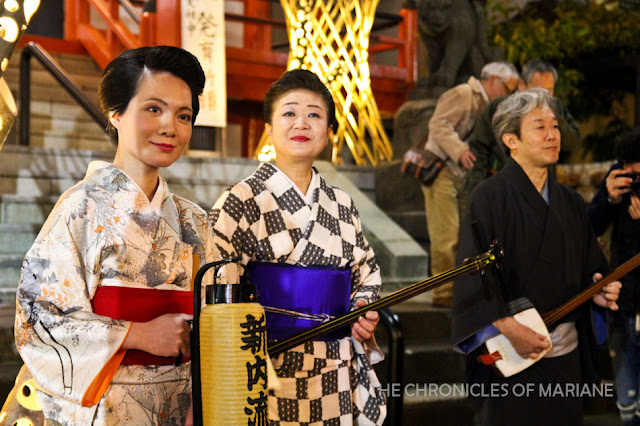
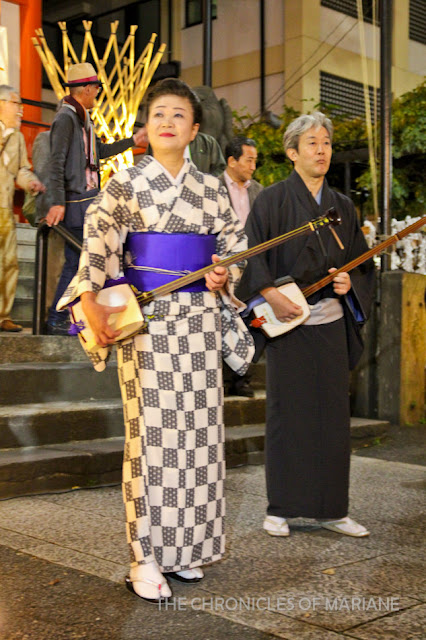

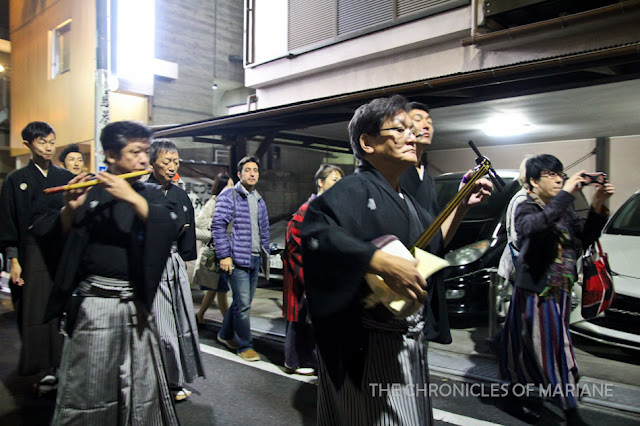
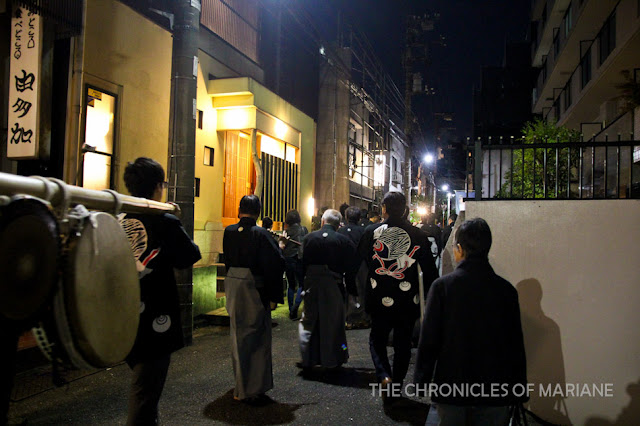
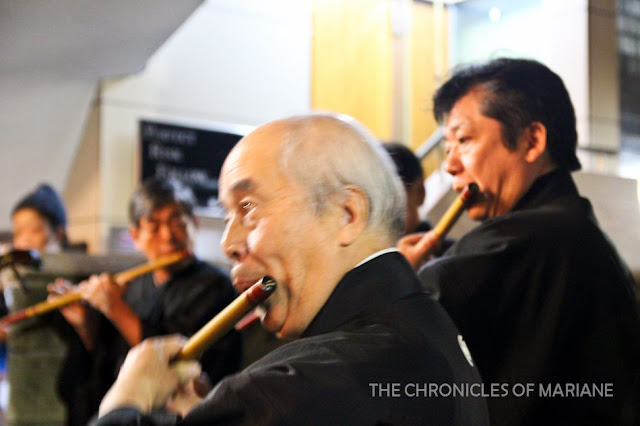



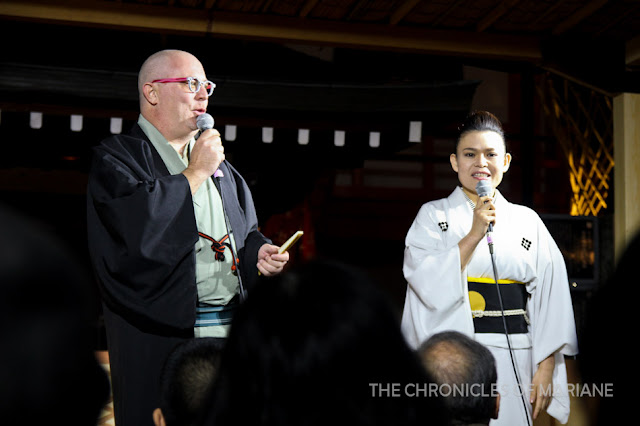
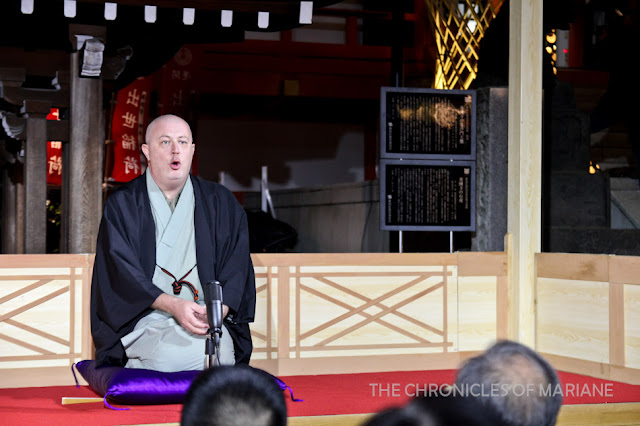

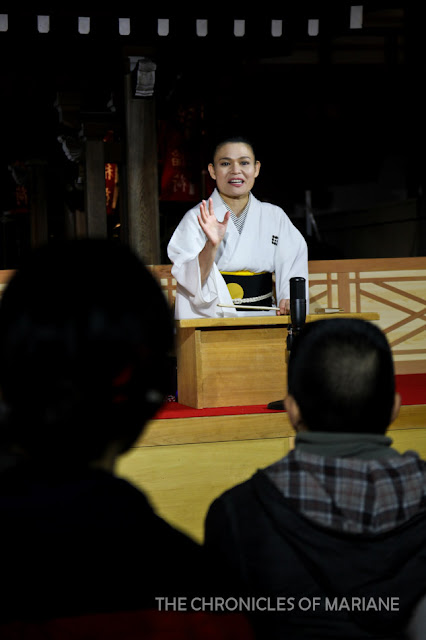
So lucky you got to experience a local festival. Can you speak Japanese? Was just wondering coz you mentioned that you watched a rakugo performance and it was in Nihongo.
ReplyDeleteI can (not super fluent though), it sure helped me to explore the country for a month :)
DeleteWow! That's cool! Did you enroll in a Nihongo class or just self study? I wish I could speak and understand Nihongo and Korean, but I am too lazy to study. Good thing most of the Japanese and Korean people are helpful even if they can't speak English...that's how I got by! Haha!
DeleteI did self study for a year or so during college (instead of focusing on my lectures, I did this instead lol). Japanese & Korean are like sister languages, grammar is very similar and words sound alike because of their Chinese origins. It's never too late to start :) I agree, they are super helpful regardless, the locals are the reason why I want to go back to JP & KR too!
Delete